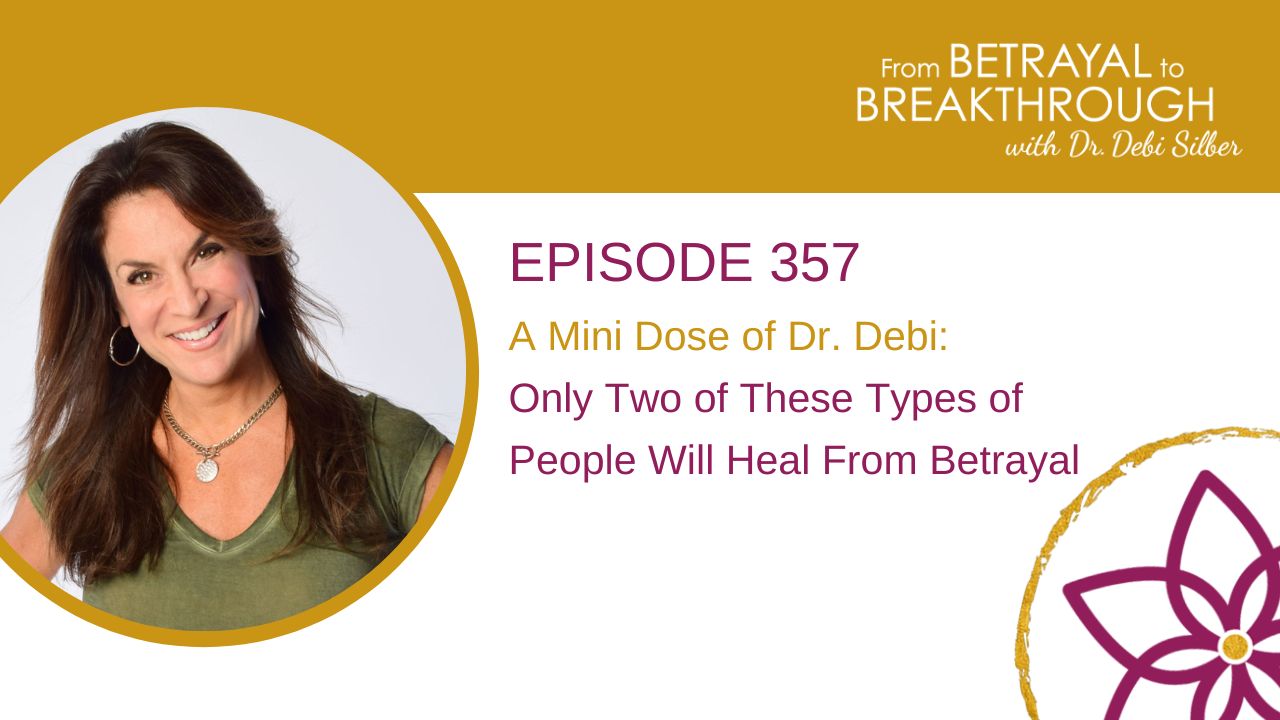 Only Two of These Types of People Will Heal From Betrayal
In this episode, Dr. Debi dives into the fascinating outcomes of what happened when she emailed her newsletter subscribers. She asked her audience a simple question: “If I can help you, respond to this email.” The responses she received were incredibly telling, categorizing her audience into 4 groups based on their reactions to betrayal and their approach to healing. Join Dr. Debi as she breaks down these groups, shares her insights, and offers guidance on moving forward.
Only Two of These Types of People Will Heal From Betrayal
In this episode, Dr. Debi dives into the fascinating outcomes of what happened when she emailed her newsletter subscribers. She asked her audience a simple question: “If I can help you, respond to this email.” The responses she received were incredibly telling, categorizing her audience into 4 groups based on their reactions to betrayal and their approach to healing. Join Dr. Debi as she breaks down these groups, shares her insights, and offers guidance on moving forward.
Key Points Discussed:
- The Experiment: Debi sent out an email to her newsletter subscribers, offering help and asking for a response on how she could support them.
- The 4 Types that Emerged
- The Thrivers: This group shared their journey of overcoming betrayal by actively seeking healing and progress. They are beautiful examples of resilience and the willingness to move forward despite the pain. Dr. Debi shares her admiration for their determination and discusses how their proactive steps towards healing have led to significant personal growth and improvement in their health.
- The Sharers: People in this group opened up about their stories, seeking a safe space to express their experiences without judgment. Dr. Debi emphasized the importance of acknowledging where they are, offered them some strategies, and encouraged small steps towards change.
- The Resigners: These people feel stuck, believing there’s nothing they can do to change their situation. Dr. Debi challenged this notion, explaining the dangers of staying in a resigned state and the impact it has on personal well-being and growth.
- The Skeptics: This group is characterized by a lack of trust, possibly as a result of their betrayal. Dr. Debi addressed the importance of rebuilding trust, not only in others but in themselves, to open up to healing and new opportunities.
- Healing requires intentional effort and movement through the 5 Stages of Betrayal to Breakthrough.
- Small, seemingly insignificant steps can lead to significant changes and improvements.
- Trust, though difficult to rebuild, is essential for healing and moving forward.
- Reflect on which group you identify with and why.
- Consider the suggested actions and mindsets for moving forward and healing.
- Engage with the community, share your story, and consider reaching out for support if needed.
